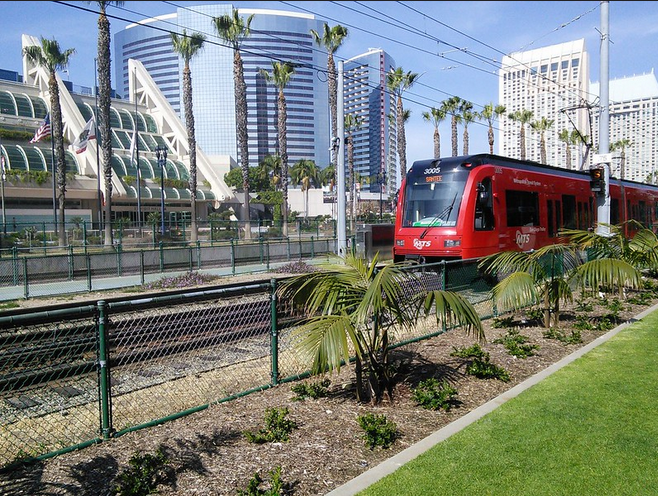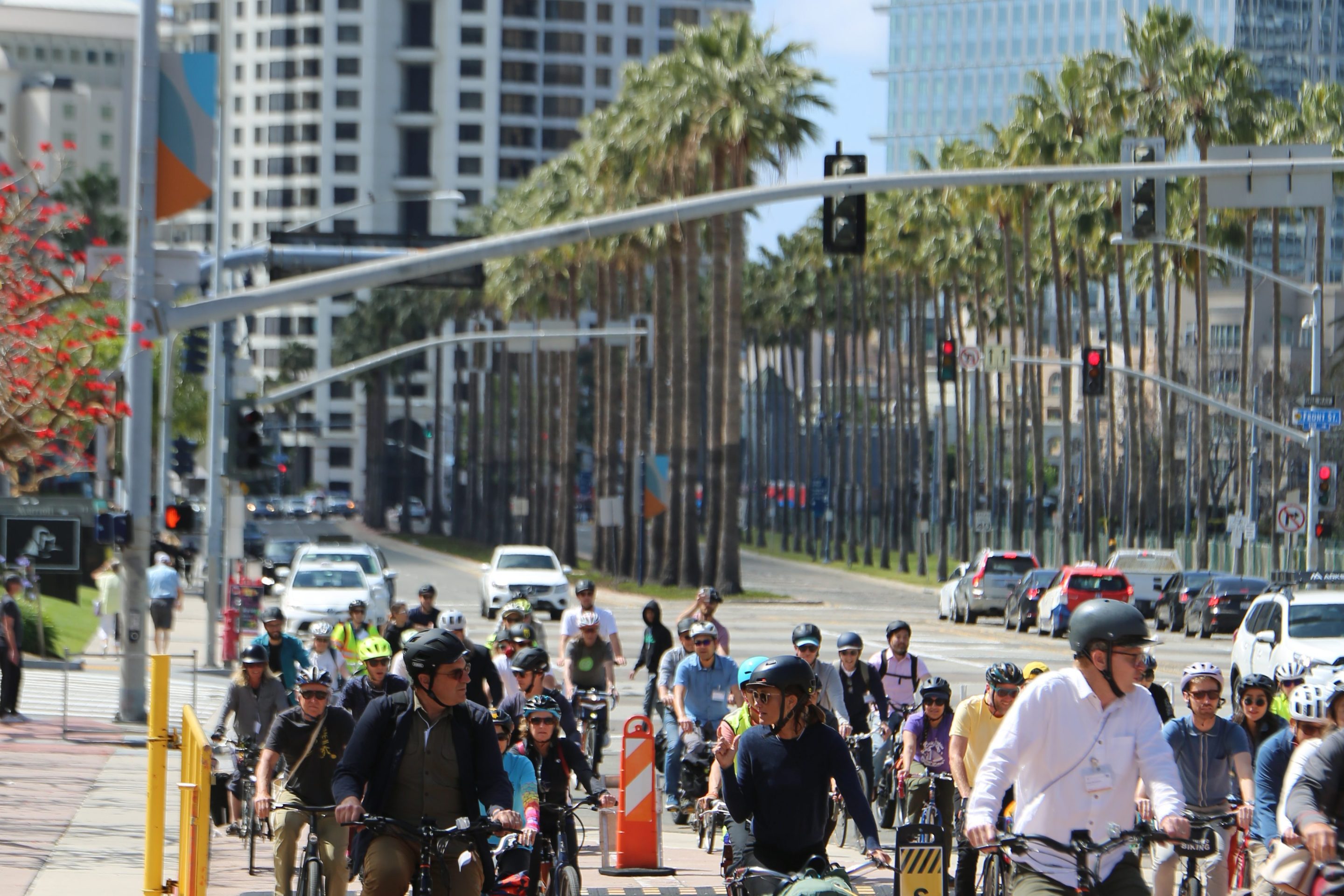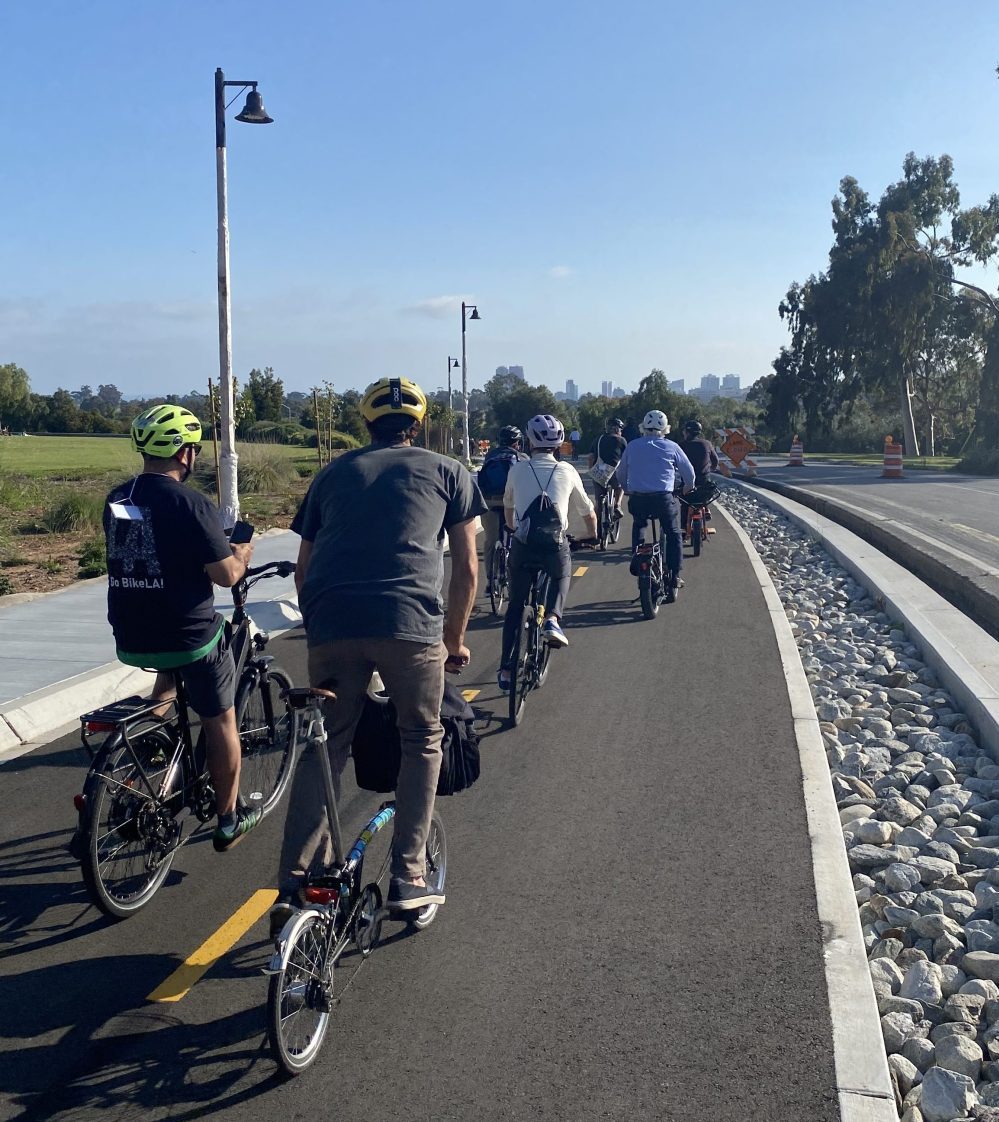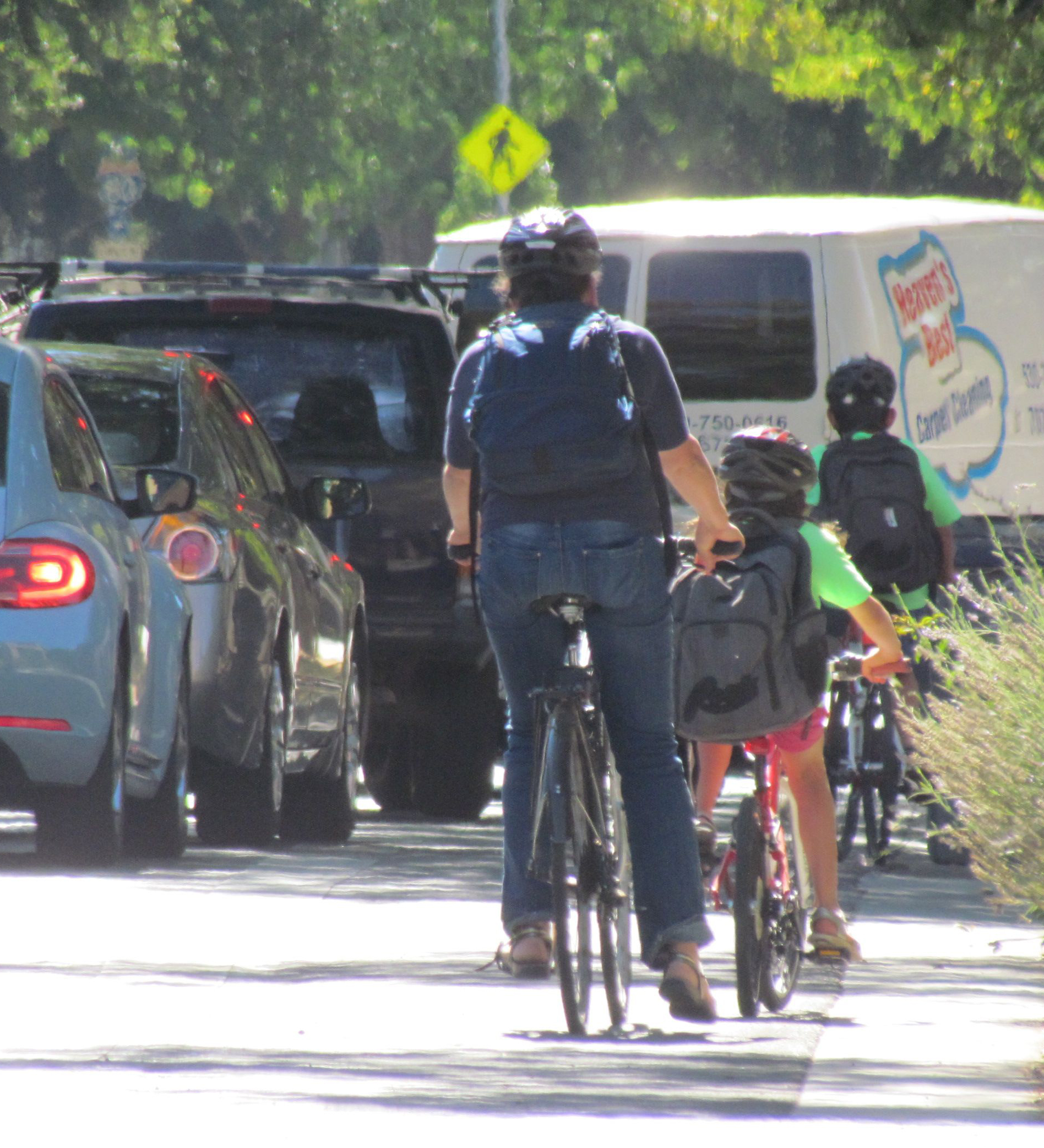Governor Newsom’s Urgency on Infrastructure Is Not About Climate (It’s About Money)
The administration frames its proposal as urgently needed for the state to make good on its climate and clean energy goals - or lose out on federal funding.
4:44 PM PDT on June 12, 2023

WHAT infrastructure gets built is as important as how fast. Will it be transit? Highways? Who gets to choose?
Last week, various Assembly and Senate committees held hearings on Governor Newsom's "infrastructure package," a proposal which he said would "cut project timelines, save money, and reduce paperwork while speeding up construction of infrastructure projects and creating hundreds of thousands of jobs."
The hearings were in response to the administration's insistence that the proposal is urgent, framing it as a way for the state to make good on its climate and clean energy goals - or lose out on federal funding.
As the week and the hearings progressed, it became ever clearer that the urgency in question is not about the climate or the environment. It's about the money. California stands to gain - or lose - large amounts of once-in-a-lifetime funding from the Federal Infrastructure Investment and Jobs Act (IIJA) that will become available starting some time later this year.
"California must build more and faster to reach its climate goals," says Newsom's press release on the package. But if new infrastructure includes environmentally damaging highway expansions and fake clean energy like hydrogen - which seems likely - those climate goals will be thoroughly undermined.
Newsom's proposal stems from a years' worth of work by a range of state agencies, led by former Los Angeles Mayor Antonio Villaraigosa, Newsom's Infrastructure Advisor. The group issued a report, "Building a More Inclusive and Sustainable California," that synthesizes recommendations for "building a new governance model and a replicable framework to standardize and coordinate planning, as well as streamlining processes, permitting, and approvals for delivery" to speed up the building of infrastructure.
It's a giant ask, to change the governance model of approving and permitting projects. Yet Newsom has given the legislature little time to consider the proposals, putting them into "trailer bills" that need to be adopted as part of the budget process. The budget has a tight deadline of June 30 to be completed and signed.
Understandably, legislators seemed put out at this. Senator Monique Limón, as one example, complained that "it is starting to feel like we are being jammed by design. These are big policies and big concepts being put forward" and the accelerated budget process, outside of the policy committees that usually consider issues like this, is not the right place to consider them.
The administration and agencies proposing the changes insist that there is no time to wait, and that permitting processes must be sped up now to get "critical infrastructure" including renewable energy and clean water built quickly.
The committees balked at the truncated process, but were also less than enthusiastic about the content of the proposals, or what could be ascertained about it. Even staff explaining the package at the various hearings last week lacked details on what exactly they would entail. The package includes very technical provisions, including one to speed up CEQA legal processes by limiting the amount of material to be considered in lawsuits, and changing some of the ways contracting happens for specific projects, including the extremely controversial Delta Tunnels project and proposed I-15 wildlife crossings over the Brightline Desert high-speed rail project.
Newsom also issued an executive order creating a "strike force" to find ways to speed up transportation, energy, hydrogen, environmental remediation, broadband, water, and zero-emission vehicle infrastructure.
Labor and business groups showed up to support of the governor's package, and were adamant about the need for urgency to avoid losing out on that sweet federal money. They are, understandably, excited about the prospect of all the new jobs that could come online (although no one addressed the question of what happens if all that money comes in but worker shortages prevents quick build outs).
But others have good reason to want to pull back on the reins. Environmental and equity groups are especially concerned. While CEQA streamlining is probably necessary, for example, CEQA remains one of the main methods communities have for providing any input on projects that would impact them negatively. "We strongly oppose the Administration’s use of the budget process to move voluminous and broad-reaching environmental policy forward," wrote the California Environmental Justice Alliance (CEJA) to the administration in a letter signed by over 25 advocacy groups, "as this eliminates an open and transparent discussion of monumental policy decisions."
"The bill’s broadly defined list of proposed clean energy projects for a streamlined CEQA judicial review process may include harmful energy systems and approaches that increase pollution and extraction in [frontline] communities. We are specifically concerned about the possibility of expediting review processes for lithium extraction and production, hydrogen, biofuels, carbon capture and storage, among others, and would urge that these be especially excluded from the list."
The letter points out that CEQA lawsuits, one of the targets of the proposal, may not even be the main cause of delays for clean energy projects. "Many energy professionals and advocates alike do not believe that delays in clean energy progress are attributed to extended CEQA judicial review timelines, but instead due to other more prominent factors including what the market has defined as post-COVID pandemic supply chain issues, the lack of staffing devoted to addressing interconnection queue delays, and the under-investment in local and community-scale resources."
In fact, instead of proposing any funding for equitable, community solar and storage access - which CEJA has been advocating for - the governor's proposal focuses on utility-scale procurement and transmission, "including potential procurement of false energy solutions, while neglecting to include a plan for building or investing in community-scale resources."
This focus on large-scale industrial solutions parallels state policies that support private ownership of electric cars over simpler and cheaper climate and transportation solutions like e-bikes and good bike infrastructure. While business and labor groups may like this approach, it ignores the very clear conclusions of science and even of California's own policymakers that EVs cannot solve transportation emissions.
Another red flag is the vagueness about which projects would benefit from the push to build faster and who would decide. For sustainable transportation projects in particular, the easiest path for the administration would be to rely on existing project lists. But Caltrans' ongoing list of projects under the State Highway Operations and Protection Program (SHOPP) is not a climate winner. It is a constantly updated, extensive "wish list" from local jurisdictions that sustainability advocates have for a long time been trying, with limited success, to penetrate the details of. The SHOPP still includes many road widening projects, in the name of "routine maintenance and safety," which do not further the state's climate, environmental, or equity goals.
The Legislative Analysts' Office advised caution as well. They "have not seen compelling evidence for the rush" proposed by the administration, nor "specifically how these proposals would help truncate the CEQA process or help add points to our federal application" for funding. In addition, they warned, several of the proposals would delegate authority to the administration to decide which projects would qualify under its terms.
That should be a big enough red flag right there. Even if the Newsom administration had the right idea about climate, there is no guarantee that future administrations would.
Another giant red flag came in the form of several references to "the need to build roads." One came from Vincent Fong, Republican vice chair of the Transportation Committee, who made it clear he wanted to make sure there would be money for highway expansion in this package. This is consistent with his take on infrastructure. But another, more worrying comment came from Natural Resources Agency Secretary Wade Crowfoot, who was questioned repeatedly by Senator Mike McGuire about the need to hurry. "Why now - I don't get it," said McGuire. "Is this just about energy projects?"
Yes, and: "Energy projects need transportation," said Crowfoot. "Caltrans needs to build roads and bridges."
The unseemly hurry would seem to be a guarantee that it will be impossible to determine which projects actually align with climate, environment, and equity goals, especially when large-scale lithium extraction, hydrogen, and highway expansion are included under the umbrella of "climate goals." The legislature is already grappling with these issues, without much support from the Governor; how does it make sense for Newsom to steamroll past those discussions?
Streetsblog California editor Melanie Curry has been thinking about transportation, and how to improve conditions for bicyclists, ever since commuting to school by bike long before bike lanes were a thing. She was Managing Editor at the East Bay Express, editor of Access Magazine for the University of California Transportation Center, and earned her Masters in City Planning from UC Berkeley.
Read More:
Stay in touch
Sign up for our free newsletter
More from Streetsblog California
Metro Board Funds Free Student Transit Pass Program through July 2025
Metro student free passes funded another year - plus other updates from today's Metro board meeting
Commentary: There is Zero Ambiguity to the West Portal Tragedy
What happened in West Portal was entirely predictable and preventable. The city must now close Ulloa to through traffic and make sure it can never happen again
Friday’s Headlines
Inspiration from the Bike Summit; OakDOT proposes standards for temporary safety upgrades; San Diego transforms a fast road in Balboa Park; Stockton transit funding is under threat; More
Active Transportation Program Calls for Volunteer Evaluators
Apply to be a volunteer ATP application evaluator by May 10.




